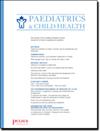手术候补名单管理:儿科医院外科医生对手术优先次序的看法
IF 1.8
4区 医学
Q2 PEDIATRICS
引用次数: 0
摘要
全球加剧的手术等待名单提供了反思优先级和资源分配决策的机会。儿科手术的独特情况和手术延误的后果促使研究报告在这篇论文。作为一个更大的项目的一部分,在我们的手术候补名单中,我们进行了一项质量改进研究,其目的是了解外科医生对我们机构手术优先排序的道德和实际现实的看法。本研究包括对来自不同专科的9名全职儿科外科医生进行的半结构化访谈,该机构是一家公立医疗保健系统中拥有10个外科专科的三级儿科医院。参与者阐述了他们如何优先考虑他们的候补名单,以及他们如何理解道德优先。这些发现与公众对医疗保健服务中的道德实践以及优先排序和资源分配实践的透明度日益增长的关注产生了共鸣。具体来说,在优先排序实践中需要更多的透明度、一致性和支持。这项工作强调了关于外科病例优先排序的机构对话的重要性。由于质量改进工作必须针对具体地点,因此无法提供具体的概括。然而,从这些访谈中收集到的见解及其收集过程对于任何对持续质量改进工作感兴趣的机构来说都是宝贵的知识共享资源。这里的目标是澄清机构内优先排序的目标,改进优先排序的实践,并使它们更加合乎道德和透明。本文章由计算机程序翻译,如有差异,请以英文原文为准。
Surgical waitlist management: Perspectives from surgeons on surgical prioritization at a paediatric hospital
Abstract Globally exacerbated surgical waitlists have provided the opportunity to reflect on prioritization and resource allocation decisions. The unique circumstances of paediatric surgery and consequences of surgical delay prompted the study reported in this paper. As part of a larger project to attend to prioritization in our surgical waitlists, we conducted a Quality Improvement study, the purpose of which is to understand surgeon’s perspectives regarding the ethical and practical realities of surgical prioritization at our institution. The study comprises semi-structured interviews with nine full-time paediatric surgeons from a variety of subspecialties conducted at our institution, which is a tertiary paediatric hospital with ten surgical subspecialties in a publicly funded healthcare system. Participants articulated how they prioritize their waitlists, and how they understand ethical prioritization. These findings resonate with the growing public concern for ethical practice in healthcare delivery and transparency in prioritization and resource allocation practices. Specifically, more transparency, consistency, and support is required in prioritization practices. This work highlights the importance of institutional dialogue regarding surgical case prioritization. Because quality improvement work is necessarily site-specific, concrete generalizations cannot be offered. However, the insights gleaned from these interviews and the process by which they were gleaned are a valuable knowledge-sharing resource for any institution that is interested in ongoing quality improvement work. The objectives here were to clarify the goals of prioritization within the institution, improve prioritization practices, and make them more ethical and transparent.
求助全文
通过发布文献求助,成功后即可免费获取论文全文。
去求助
来源期刊

Paediatrics & child health
医学-小儿科
CiteScore
2.10
自引率
5.30%
发文量
208
审稿时长
>12 weeks
期刊介绍:
Paediatrics & Child Health (PCH) is the official journal of the Canadian Paediatric Society, and the only peer-reviewed paediatric journal in Canada. Its mission is to advocate for the health and well-being of all Canadian children and youth and to educate child and youth health professionals across the country.
PCH reaches 8,000 paediatricians, family physicians and other child and youth health professionals, as well as ministers and officials in various levels of government who are involved with child and youth health policy in Canada.
 求助内容:
求助内容: 应助结果提醒方式:
应助结果提醒方式:


